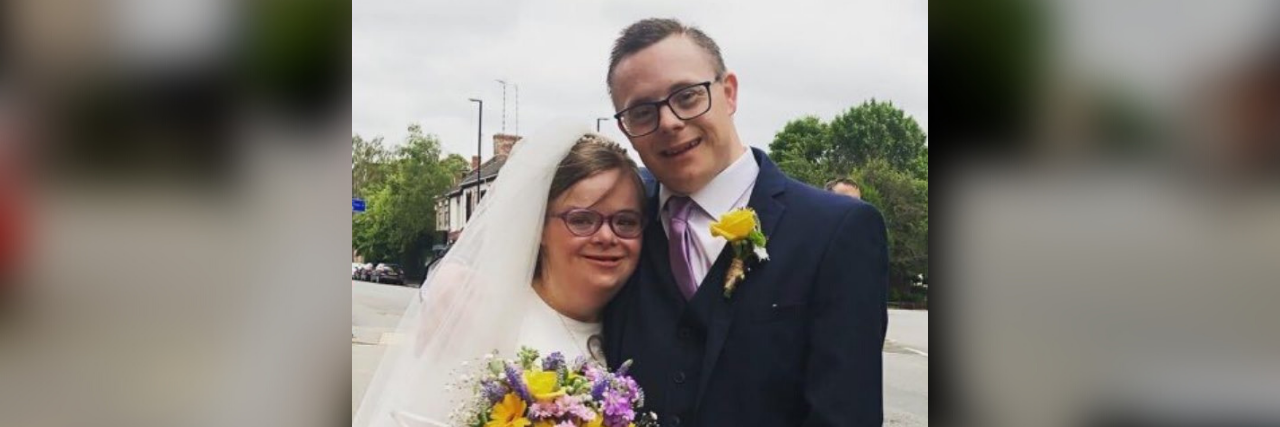How This Advocate With Down Syndrome Is Challenging a Discriminatory U.K. Abortion Law
Heidi Crowter is enchanting. That word popped into my mind repeatedly as we spoke over Zoom. She is 26 and lives in Coventry, England. Her favorite class in high school was English because she is a Shakespeare fan. She is a Shakespeare fan because she adores “Much Ado About Nothing” and “Romeo and Juliet.” Heidi is a romantic, one who is deeply in love with her husband James. She has been studying French ever since high school, and continues to this day. Heidi works with young people teaching drama, and lives a happy and full life.
The law in England states that abortion is legal up to 24 weeks gestation. However, babies with disabilities can be aborted until birth. Heidi finds this “offensive and disrespectful.” She also calls it “downright discrimination.” Heidi has Down syndrome, and she fervently wants the world to know “we’re amazing just the way we are.” In fact, that song by Bruno Mars is what Heidi calls the theme song of her case. Her case challenged the British government over the law allowing babies with disabilities to be aborted until birth.
Heidi is clear when she states this is not about the issue of abortion. This is about discrimination, the different treatment of babies with and without disabilities.
When Heidi first heard about the disparity in the law in 2020, she was stunned. She was already a seasoned advocate and decided to tackle this issue along with two other plaintiffs, Marie Lea-Wilson and one who is anonymous. When Heidi went to court in London in July 2021, she was nervous. “Not a bad nervous” she stated, “a good nervous” like someone gets before they make a speech. She had never been to court before. There was a lot of press.
There were also some downsides. One person on the High Court kept making faces and appearing disrespectful towards the plaintiffs. It was hard to see people of such power talking as if this was esoteric, not about real people right before them. Most of social media was extremely supportive, but there were some disrespectful people as well. Heidi’s comment on that was, “I’m praying for them.” That is a common saying, and I can tell Heidi means it. She is very sincere in every aspect of her life.
The ruling on this case came on September 23, 2021. The high court ruled against Heidi’s case. Heidi’s response was epic. “We face discrimination every day in schools, in the workplace, and in society. Thanks to the verdict, the judges have upheld discrimination in the womb too.” One of her expert witnesses, Katrina Scior felt the need to release her testimony after the verdict. She stated, “…institutional stigma such as that inherent in section 1 (1)(d) of the 1967 Abortion Act has a powerful role to play in either countering or promoting and maintaining negative stereotypes, prejudice and discrimination (experienced by people with Down syndrome and learning disabilities resulting from other causes).”
Dedication has propelled an appeal. It is a long process, most likely a year. It is expensive, thus a crowdfunding campaign has already raised 24,000 pounds. They need at least 26,000 pounds. That seems achievable soon.
When Heidi and I were chatting and she mentioned “Just the Way You Are.” I told her that was my daughter Yassy’s favorite song too. Yassy is 21 and has Down syndrome and autism. Yassy came and briefly spoke with Heidi. My heart was bursting with so much happiness seeing these two young women connecting, even though they live on different continents. They have much in common. And that is the essence of what Heidi wants for everyone — for us to just see each other as people first. Watching her do just that with me, my daughter, and everyone she spoke about was enchanting. The world will be seeing more of Heidi. That is a fact.
Image via Facebook.

